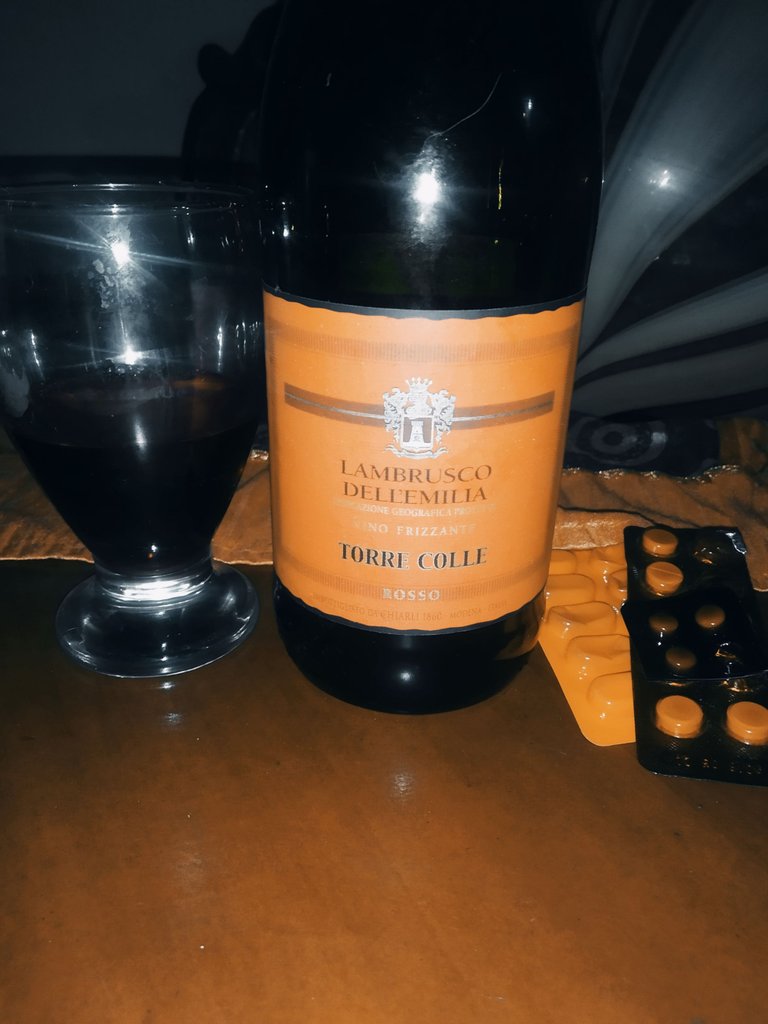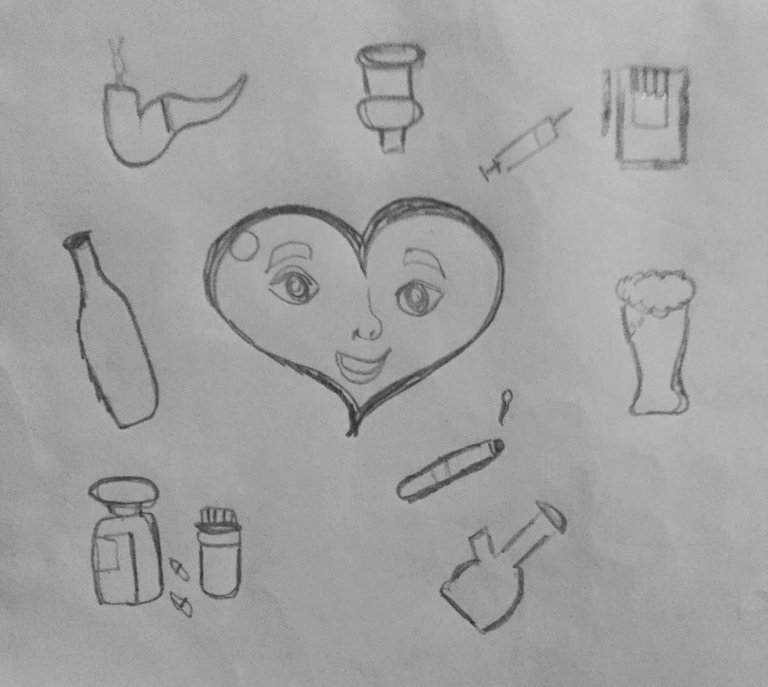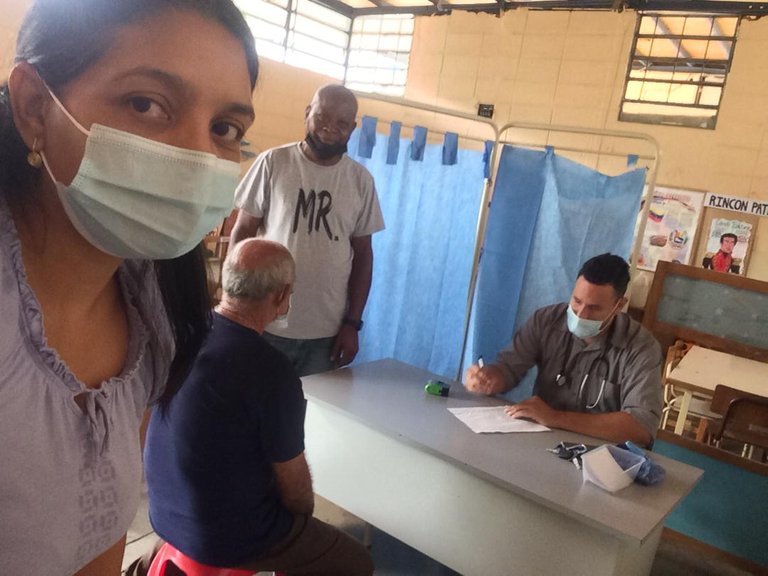
Hola Hivers, un nuevo lunes se hace presente en nuestro transitar, y con él, la fé puesta en que nuestra semana será genial. Mis deseos de salud, fuerza, energía positiva y alegrías vayan siempre con ustedes, y que todo da posible de la mano de nuestro Dios Todopoderoso.
Por aqui, seguimos con muchas tareas, pero con la mejor disposición, y no quiero faltar a la cita con la maravillosa comunidad de Hive.
Estos días han sido de trabajo arduo, estudió constante y aprendizaje continuo. Han sido muchos los pacientes tratados por el servicio en el cual me desenvuelvo realizando postgrado, así como también en el consultorio médico popular dónde por falta de médicos estoy prestando mi apoyo dos veces por semana.
En referencia a esto tanto en el servicio, como en la consulta hay un común denominador, cada vez que me llegan pacientes (sobretodo cuando está próximo el fin de semana), que requieren tratamiento ya sea antibióticos, antimicóticos o antipireticos, siempre me preguntan "Doctor, ¿puedo ingerir alcohol tomando este tratamiento?", La repuesta siempre sera "no".
Sobre lo anteriormente planteado, hoy te digo ¿Por qué no debemos combinar alcohol (etílico) con medicamentos?
Sabemos que el alcohol etílico es el principal ingrediente de las bebidas "felices" (licor), que es incoloro y que es de fácil disolución en agua, y otros líquidos orgánicos, a menudo lo encontramos en el ron, la cerveza, el vino, entre otras.

Asimismo, a menudo utilizamos el alcohol para compartir, celebrar, en momentos de tristeza o dolor. Es importante además destacar que el alcohol puede llegar hacer adictivo, tóxico y nocivo para nuestra salud, muchas veces causando daños irreversibles a nivel neuronal, hepático, etc.
Ahora bien, es bien sabido tanto en medicina, como a nivel farmacológico, el alcohol se metaboliza principalmente a nivel hepático, al igual que la mayoría de los medicamentos, por lo cual el uso combinado de estos productos puede generar una inhibición de ese metabolismo.

Una vez realizado la acción antes mencionada, produce un aumento desproporcionado del alcohol de manera más fácil, originando síntomas, como sudoración excesiva, náuseas, vomitos, diarreas, debilidad, lesiones en la mucosa gástrica, daños neurológicos (en caso de ser combinados con benzodiacepinas), daños hepáticos ( en caso de combinarlos con antiinflamatorios tanto esteroideos como no esteroideos), inclusive se puede poner en riesgo la vida del paciente.
Debo decir, que mi cuerpo de guardia son frecuentes las emergencias suscitadas por la ingesta de alcohol combinadas o no combinadas con medicamentos, generando gran desconcierto en el individuos atendido como en sus familiares.
Es importante resaltar que el alcoholismo es un problema de salud pública, y debemos tener conciencia a la hora de ingerirlo, tomar las precauciones necesarias para no poder en riesgo nuestra vida, ni de quienes nos rodean y recordar que nunca se pueden mezclar con ningún tipo de medicamentos.

Gracias.
Dios siempre de Cabrestero.
PD: Fotos y Dibujo de mi propiedad.
English:
Hello Hivers, a new Monday is present in our journey, and with it, the faith that our week will be great. My wishes for health, strength, positive energy and happiness always go with you, and that everything is possible from the hand of our Almighty God.
Around here, we continue with many tasks, but with the best disposition, and I don't want to miss the appointment with the wonderful Hive community.
These days have been of hard work, constant study and continuous learning. There have been many patients treated by the service in which I am involved in postgraduate studies, as well as in the popular medical office where, due to the lack of doctors, I am providing my support twice a week.
In reference to this, both in the service and in the consultation there is a common denominator, every time patients come to me (especially when the weekend is near), who require treatment, be it antibiotics, antimycotics or antipyretics, they always ask me " Doctor, can I drink alcohol while taking this treatment?", The answer will always be "no".
Regarding the above, today I tell you Why should we not combine (ethyl) alcohol with medications?
We know that ethyl alcohol is the main ingredient of "happy" drinks (liquor), that it is colorless and that it dissolves easily in water, and other organic liquids, we often find it in rum, beer, wine, among other.
Also, we often use alcohol to share, celebrate, in times of sadness or pain. It is also important to note that alcohol can become addictive, toxic and harmful to our health, often causing irreversible damage to neurons, liver, etc.
Now, it is well known both in medicine and pharmacologically, alcohol is metabolized mainly in the liver, like most medications, so the combined use of these products can generate an inhibition of that metabolism.
Once the aforementioned action has been carried out, it produces a disproportionate increase in alcohol more easily, causing symptoms such as excessive sweating, nausea, vomiting, diarrhea, weakness, gastric mucosal lesions, neurological damage (if combined with benzodiazepines ), liver damage (in case of combining them with both steroidal and non-steroidal anti-inflammatories), even the life of the patient can be put at risk.
I must say that in my emergency room there are frequent emergencies caused by the intake of alcohol combined or not combined with medication, generating great confusion in the individuals served as well as in their families.
It is important to highlight that alcoholism is a public health problem, and we must be aware when ingesting it, take the necessary precautions so as not to risk our lives, or those around us, and remember that they can never be mixed with any type of medications.
Thank you.
God always Cabrestero.



